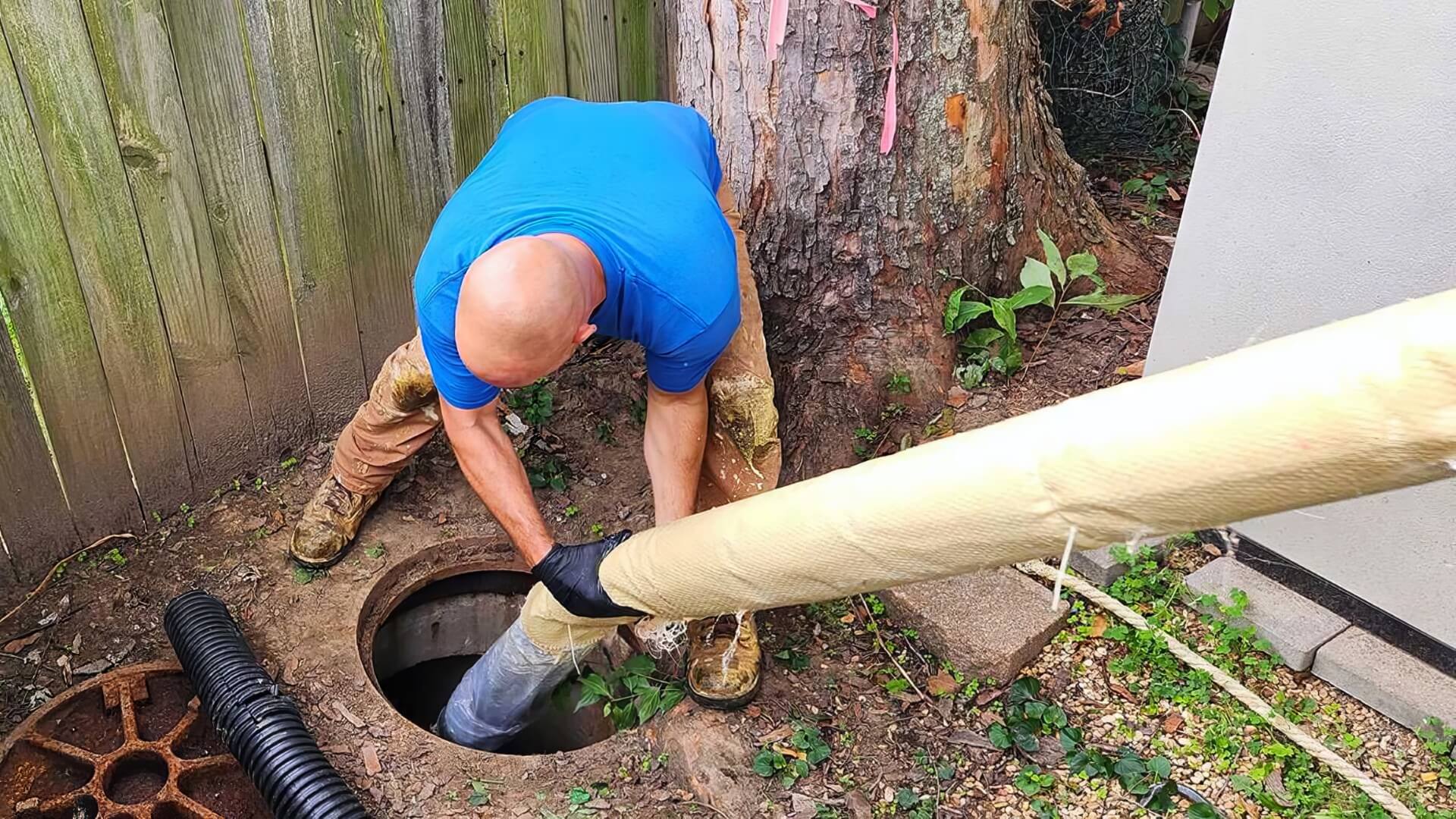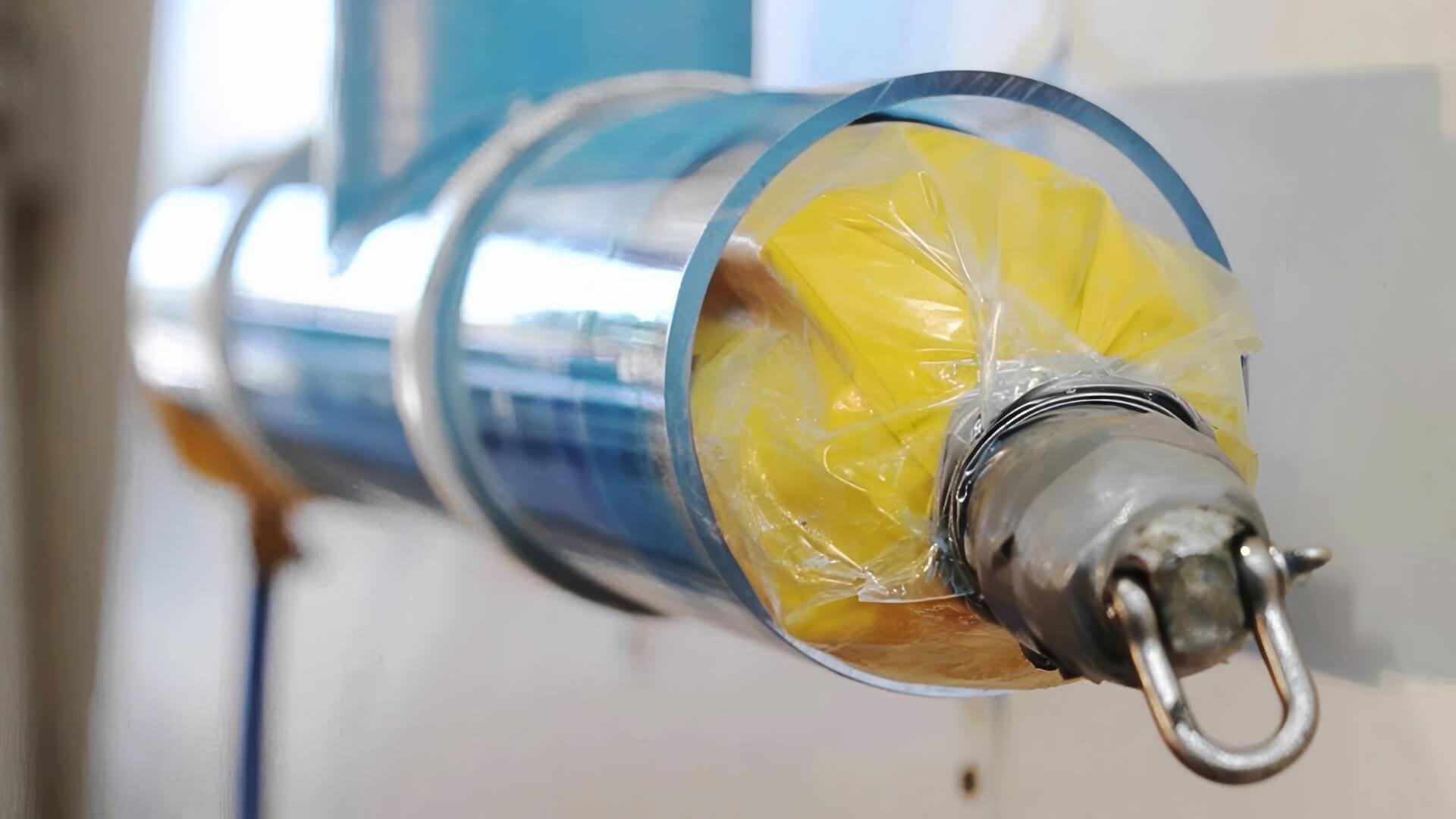Understanding Blocked Drain Emergencies
A blocked drain is an emergency that can cause foul smells, flooding, and unsanitary conditions, potentially damaging your home’s structure.
In the event of a drain blockage, act quickly but with caution, refraining from using any drains to avoid worsening the issue.
In emergencies, promptly contact a 24/7 emergency plumber and curb water usage until they arrive.
Take initial safety precautions like keeping children and pets away from affected areas. Cordon off locations with bad odours or standing water to prevent slips and contamination. With professional assistance on the way, try to remain calm and avoid rushed action that could endanger yourself or others.
Open windows to ventilate the area.
It’s important to note that in blocked drain emergencies, advanced preparation can significantly reduce hardship. Maintain your home’s plumbing fixtures through regular drain inspections and clearing. By planning ahead, blocked drains can be resolved swiftly and safely.
To maintain drain health, avoid disposing of hazardous materials in them and ensure positive ventilation for consistent airflow.
Common Causes of Blockages
Blockages often arise from hair buildup due to normal shedding during washing, with the average person losing 50-100 strands per day that can clog pipes if not captured by drain screens.
When it comes to kitchen maintenance, pouring fats, oils and grease down sinks also commonly leads to obstructions as these thick substances solidify.
Food scraps should be composted or discarded rather than put down the drain. Tree roots infiltrating exterior drainage lines is another issue, slowly impinging the flow of water. Root destruction services can remedy this through pipe relining or replacement.
Accidentally dropping small objects like jewellery or toys eventually causes downstream jams. Remind children to keep small items like toys away from drains to avoid accidental blockages. By modifying daily habits to prevent blockage triggers, many backup events can be avoided altogether through vigilant household maintenance.
Grease and Food Buildup
Disposing of fats, oils, and grease in kitchen sinks is a major cause of blockages and can affect your entire plumbing system; as little as 500 mL of oil can coat the pipes.
Coffee grounds, eggshells, and fibrous vegetables can worsen fat blockages, so avoid washing any food waste down the sink.
A further preventative measure is to dry pots and pans before washing, which can help prevent grease and food accumulation in drains.
Scrape excess grease into the bin before rinsing cookware, and clear strainers into compost post-washing.
Hair Accumulation
Bathroom sinks are common spots for hair clogs, with shedding during showers and grooming leading to significant blockages over time.
Prevent hair accumulation in your plumbing by placing drain screens over plugholes to catch loose strands. Check these screens weekly, removing tangled hair and disposing it in the rubbish. Alternatively, collect hair after brushing and discard appropriately before washing.
For persistent hair blockages, it’s advisable to contact emergency plumbing services.
Ensure you remove all dislodged hair to stop it from causing further blockages downstream. Alternatively, try an enzyme drain cleaner regularly to dissolve hair and soap scum. With simple precautions, households can prevent hair-related obstructions.
Non-Flushable Items
Flushing inappropriate objects down toilets and sinks is a leading cause of drain blockages. Items like disposable wipes, cotton swabs and buds, dental floss, sanitary items, condoms, paper towels, and kitty litter can easily snag within pipe systems.
Flushable-labelled items such as wipes and sanitary products don’t disintegrate like toilet paper, causing build-ups and restricting water flow. Sewer authorities utilise significant resources to remove these items from the system.
To avoid blockages, refrain from flushing anything beyond human waste and toilet paper. Place any other items in the rubbish bin, even if their packaging claims flush-suitability. By adjusting disposal habits accordingly, households can prevent many drainage issues.
Pipe Damage or Tree Roots
Less commonly, drain pipes can become blocked due to structural damage or intruding tree roots. Cracked drainage pipes allow soil, silt and even roots to penetrate pipe walls over time. As gaps widen, flows decrease and obstructions result.
One way homeowners may detect pipe issues is through slowing drain times or localised seepage along exterior walls. However, many pipe problems go unnoticed until total blockage occurs. At this point, significant excavation work is generally required for assessment and repair.
Specialist drain cleaners have camera equipment to thoroughly inspect pipes and locate breaches. Based on findings, they can either patch damaged sections or recommend whole drain replacement where ageing or roots have caused excessive deterioration. Though disruptive, early pipe repairs prevent severe future blockages.
Taking Immediate Action
In a blocked drain emergency, immediately halt the introduction of more wastewater into the system.
Divert water use to alternate facilities where possible and turn off appliances like dishwashers and washing machines. Minimise essential water use until the blockage is resolved.
Check for flooding in nearby sinks, tubs, laundry facilities, outside grates and basement fixtures. Cordon these areas off if overflow seems likely, keeping family and pets away. Cordon these areas off if overflow seems likely, keeping family and pets away.
Turn on exhaust fans where available.
Attempting to clear obstacles yourself risks making the situation worse. Avoid chemical drain cleaners as these can damage pipe infrastructure when used improperly. Avoid chemical drain cleaners as these can damage pipe infrastructure when used improperly.
Over-vigorous plunging may leave you with still water and damaged fixtures. Inserting snakes too far risks scratching pipes. Inserting snakes too far risks scratching pipes.
Contact a 24/7 emergency plumber immediately, stressing the severity of the situation for a prompt response. until their arrival, take all reasonable care to ensure family safety, home protection and hazard minimisation. Remain calm and follow the plumber’s guidance to resolution.
Attempting to Unclog Yourself
When facing minor drain blockages, some basic DIY methods can be cautiously tried before calling a professional. Simple solutions like a plunger, drain snake, boiling water, or baking soda and vinegar can sometimes dislodge obstructions.
For initial attempts, use a cup plunger submerged in standing water, pumping vigorously 10-15 times. Repeat this process if drainage is slow, as this technique can dislodge nearby clogs.
A hand turn auger or “drain snake” inserted into your drain pipes rotationally hooks debris to extract it. Ensure central rods do not scratch pipes when cranking the handle. Retrieve all loosened matter to prevent downstream impacts.
Pouring 1-2 kettles of boiling water down affected drains can help melt fatty grease blockages. Follow up by adding 500g baking soda then 500mL vinegar before sealing the drain briefly to allow fizzing reactions. The mixture helps dissolve organics.
Avoid chemical drain cleaners, as they can swiftly damage pipes. Exercise caution with home-based clearing methods and don’t forcefully attempt to fix plumbing gas systems to avoid fixture damage or personal injury.
If simple efforts fail to improve flows within an hour, cease your attempts and reach out to an emergency plumber soon to prevent escalation. They can properly assess causes and use advanced methods not available to householders. Safety should remain the top priority with blocked system issues.
Calling a Professional Plumber
When household drain clearing attempts prove ineffective, it is crucial to contact a licenced emergency plumber right away. Persistent blockages not relieved within hours generally require professional-grade equipment to locate and resolve safely.
Cherrybrook Plumbing offers expertise with specialised snakes, high-pressure jetters, and pipe inspection cameras to safely extract obstructions without damaging the plumbing infrastructure.
Blocked sewer lines, outdoor drains, or entire home systems involve contamination risks that require urgent professional response. These scenarios need expertise and proper safety protocols before restoration work begins.
Preventing Future Blockages
To prevent future drain blockages, start by educating all household members on proper waste disposal habits.
Avoid Install sink strainers to catch food debris and properly dispose of fats, oils, and grease rather than pouring them down drains.
Routinely pour one kettle of boiling water weekly down drains to melt fatty deposits before they solidify. Supplement with a monthly baking soda and vinegar treatment followed by hot water to scour organics in a natural, safe manner.
Arrange for an annual inspection of your drainage pipes by a professional plumber using camera technology to identify any issues early. They can also hydro jet interiors to Flush sediment before it accrues and disrupts the flow of water. Consider engaging professional plumbing services for drain cleaning maintenance every six months to extract hair and debris from plumbing.
Ensure overflow holes around the property feed properly without obstruction to prevent flooding during extreme weather. With vigilant household habits and proactive servicing, drain systems in your house can keep flowing freely for decades.
Proper Disposal Habits
Establishing and enforcing proper household disposal habits is crucial for maintaining clear, functioning drains. Always refrain from pouring fats, oils, greases, or food scraps down any sink or drain. These substances harden within the pipes, leading to inevitable clogs.
Any solids like coffee grounds or eggshells should go into rubbish or compost bins, not rinsed into sinks.
Wipe greasy pans with paper towels before rinsing and regularly empty the sink strainer to prevent particles from washing into the drain. Refrain from using garburators or food waste disposals, which can cause jams as waste particles go down the system.
Keep hazardous fluids like paints, chemicals, motor oils or pesticides strictly out of drains and sewer systems, disposing them through designated hazardous waste collections. They pollute waterways and can corrode infrastructure. Even soaps should be used minimally with full rinses to limit residue accumulation.
Maintaining vigilant disposal habits can prevent numerous blockages, supporting the longevity of your drainage system.
Drain Maintenance
Performing regular drain maintenance helps prevent blockages by clearing hair, grease, and other debris before major accumulations occur. A monthly routine using baking soda and vinegar can help dissolve buildup and keep drains clear.
Start by pouring around 500g of baking soda down the drain, focusing on areas prone to blockages such as kitchen and bathroom sinks. Follow with 500mL of vinegar and cover the drain for 5-10 minutes as foaming reactions work to break up organics. Finish by flushing with 2-3 kettles of boiling water to rinse any residual debris.
Alternatively, use a hand-crank auger monthly to manually fish out hair and particulates clinging to pipe walls. Avoid scratching pipes with the auger and be sure to remove all extracted debris. Supplement by occasionally using enzyme drain cleaners to safely dissolve grease, hair and soap scum.
Having a professional plumber inspect interior drain pipes annually with a camera allows early detection of cracks or root infiltration. They can also routinely hydro jet pipes to thoroughly flush any looming obstructions. Costly blockages can be prevented with vigilant habits and proactive maintenance.
Signs of Serious Drain Issues
Several warning signs indicate developing drainage issues that require urgent professional attention. Slow-flowing fixture drains even after attempts at plunging suggest significant blockages are forming within pipes. Bad sewage odours emanating from drains also signal trouble if clearing efforts provide no relief.
Backed up water manifesting anywhere below the main house drain line must be addressed swiftly to prevent sewage contamination. If multiple fixtures are demonstrating reduced outflows concurrently, scope issues like roots or pipe damage could be preventing wastewater from exiting the property.
Overflowing wastewater poses significant health risks and can lead to swift structural damage. Don’t delay; contact an emergency plumber quickly when encountering warning signs to avert serious home damage.
Backups and Flooding
Backups or flooding from a blocked drain require swift action to mitigate contamination health risks and prevent rapid structural and moisture damage.
Wastewater backing up into sinks, tubs, floor drains or toilets signals a major blockage is preventing proper drainage.
If water appears to be rising from any drain or the toilet is overflowing, get family members and pets away from affected areas right away. Have someone shut off the main water valve to prevent continued water flow worsening the backup as you call a 24/7 emergency plumber.
Attempting makeshift fixes, especially with gas hot water systems, will likely make the problem much worse.
For minor flooding, block doorways with towels to prevent spreading while ventilating the area thoroughly. If water won’t recede or threatens to overflow fixtures, evacuate the home until help arrives. Extensive backups involving your sewer line require urgent professional intervention before restoration can safely begin.
Foul Odors
Unpleasant sewage odours emanating from household drains often indicate wastewater is backing up and stagnating due to a significant blockage. As organic materials in the stalled flow decompose, they release nasty sulphuric gases detectable through drain fixtures and vents.
If clearing attempts provide no relief from foul odours, urgent servicing is required. Lingering sewer gases pose health risks while signalling potential infrastructure failure if left unaddressed. Ventilating affected areas can provide temporary relief. However, as odours persist, contact a professional plumber immediately.
Are you contemplating what to do in the face of foul odours or suspected blockages? Cherrybrook’s technicians have specialised equipment to locate blockages prompting odour issues. They can diagnose the exact cause, clear obstructions, jet away sediment, and camera inspect for cracks permitting gas leaks. By pinpointing and addressing the root issue, foul drain odours can be eradicated long-term, restoring healthy household air quality.






